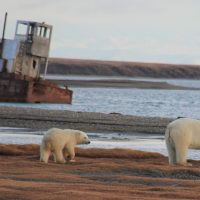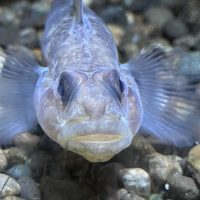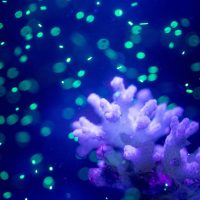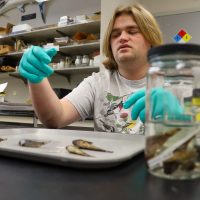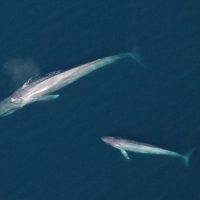Filter Results
Seattle City Light Hiring Conservation Hatchery Biology Intern
Seattle City Light is recruiting for an internship based at the Native Salmonid Conservation Facility (NSCF) in Usk, WA, in Pend Oreille County. It provides a hands-on learning experience focused on conservation-based native fishery restoration, supporting Boundary Dam FERC licensing obligations. The 2025 Hatchery Internship offers students an opportunity to develop entry-level biological data collection and animal husbandry skills within an environmental restoration context.
Read moreScientists pilot a new method to measure the health of wild polar bears
Climate change threatens the health of polar bears across the Arctic. A study published in Conservation Physiology on March 5, introduces a new approach to measuring the health of polar bear populations, drawing inspiration from a well-known concept in human medicine: allostatic load. The lead author of the study is SAFS PhD student, Sarah Teman, working with UW Professor, Kristin Laidre, and scientists from USGS and Fish and Wildlife Health Consulting.
Read moreWhy study at SAFS? Because you absolutely love fish!
What inspires our undergraduates to pursue a degree all about aquatic and fishery science? We caught up with Eli Nettlebeck—a junior at SAFS, a transfer student from Seattle Central College, and someone who loves fish—to find out why.
Read moreMicroplastics and their macro problems: UW Daily speaks to Jacqueline Padilla-Gamiño
Microplastics are everywhere. From the clothes you wear to the food you eat, to even your toothbrush, microplastics are difficult to avoid. And these tiny pieces of plastic have big consequences for both humans and the wider environment. UW Daily speaks to Jacqueline Padilla-Gamiño about her research into microplastics and marine organisms such as corals and anemones.
Read moreCenter for Limnology Hiring Fisheries Research Technicians
The Center for Limnology at the University of Wisconsin—Madison is seeking four motivated and independent undergraduate students to join the fishing technology research team based out of Trout Lake Station.
Improvements in angler technology over time have the potential to increase angler success and fish catchability. Recent research testing the influences of angler technology on fish catch rates has been mixed, with some studies showing a positive influence of technology use and others with no effect.
Who’s who? Using identification tools to tell freshwater sculpin apart
Scanning through the rows and rows of preserved fish housed in the UW Fish Collection, it’s easy to get lost trying to figure out what each fish is, especially to the untrained eye. Fish identification is a necessary step when preserving specimens from the wild, which deliver key insights for researchers delving into the untold secrets of fish. For SAFS undergraduate Liam Aston, his capstone research involves looking at Cottus specimens in the Fish Collection, a group of freshwater sculpin found throughout the Northern Hemisphere.
Read moreSpring Quarter Paid Internship: Science Outreach for MeadoWatch
The Brosi Lab in the UW Biology Department is seeking an intern for Spring Quarter to assist with outreach efforts and the development of future outreach positions for the MeadoWatch program. We are looking for a student with a strong interest in community outreach to assist with developing materials supporting the expansion of our program, with the goal of getting more people involved in research and the outdoors, specifically those from populations who have historically had less opportunities to be in these spaces.
Read moreKing County Hiring for Summer Stream Team
The King County Department of Natural Resources, Water and Land Resources Division anticipates hiring six temporary seasonal staff to assist with summer/early fall field sampling work. This position is in the Lakes, Streams, Sound, and Ground Unit, within the Science and Technical Support Section. Staff in this position will be responsible for providing short-term support to the Stream Benthic Macroinvertebrate Monitoring Program.
Read moreUnravelling the mystery of the missing blue whale calves
Only two blue whale births have ever been recorded in human history, an extraordinary mystery given they give birth every two to three years. Calves are also only rarely sighted—far less than would be expected from their pregnancy rates. Calves closely follow their moms and are sighted as mother-calf pairs, but why are so few detected? A new UW study by Trevor Branch proposes why. Its explanation hints at when and where the unseen births are happening and where blue whale calves spend their earliest months.
Read more